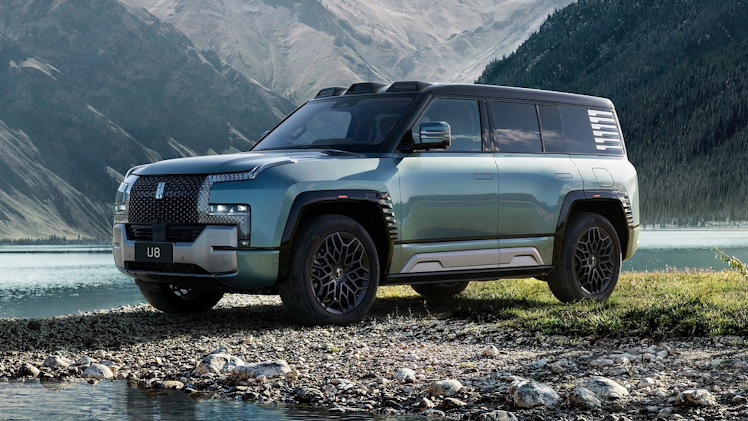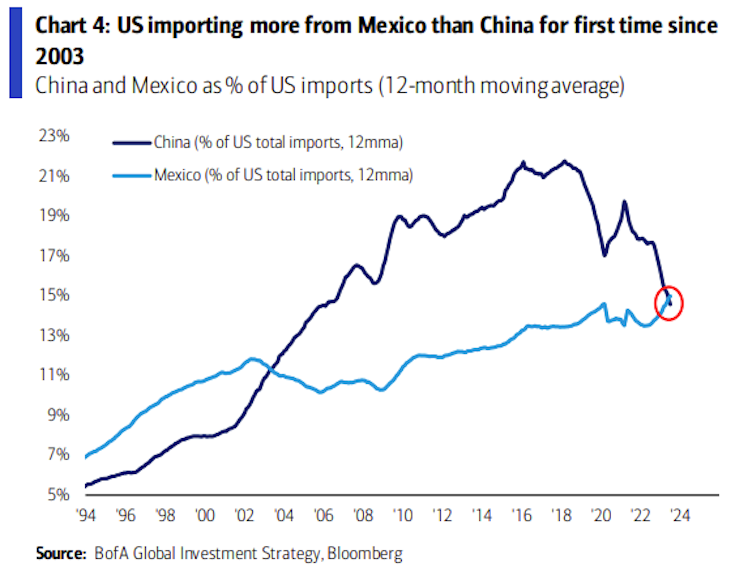Trending Assets
Top investors this month
Trending Assets
Top investors this month
China's electric vehicle industry is lifting the Chinese economy out of recession
Whether it's emerging markets or developed nations, China has been exporting electric vehicles globally and have seen an explosion in demand for the past few years. While the sales success of Chinese EVs in Europe and developed nations in Asia is no surprise, in emerging markets, Chinese EV companies have seen instant success within their first year of selling vehicles there. While established automakers like $TSLA look to halt the expansion of factory construction in other nations, BYD is looking to build factories in Thailand, Brazil, Indonesia, Hungary, Uzbekistan and even Mexico. In markets where Toyota use to dominate, BYD is now outselling Toyota. This is because BYD is able to produce cars for much cheaper than competitors. As the middle class in emerging markets continues to grow, we can rest assured that those newly minted middle class households will choose a Chinese EV over a Japanese or even an American EV.

Since the US already imposes a 27.5% tariff on Chinese-made vehicles, Chinese automakers are avoiding the US markets. With the USMCA trade deal and the nearshoring trend, Chinese companies have been eager to offshore their factories in Mexico and take advantage of the terms of the trade deal and avoid tariffs from there. With the Chinese government offering large scale subsidies to their auto industry, Chinese automakers are able to price themselves affordably to households in Latin America. Chinese consumer companies that are already exploiting this loophole are benefiting from the trend where the US imports more goods from Mexico than from China.

While the US, Europe, and Japan find the rise in Chinese EVs to be concerning, for all other nations that don't have an auto industry, they are fond of China's rise in the automotive industry. Their people get better vehicles at affordable prices and those automakers create jobs by offering to build factories in their country. Non-westerners are not concerned with the growing influence that China will have in their country as a result of flooding their market with cheap electric vehicles as their countries are not in a military competition with China. Also, people in general would care more about advancing their financial well-being and upgrade their standard of living.
In terms of economy, China's real estate troubles and manufacturing exodus are providing a shadow over the economy's bright spots, with electric vehicles being one of the biggest bright spots. As international manufacturers leave China, Chinese automakers are filling those empty factories. As international companies demand fewer cargo services from Chinese cargo providers, Chinese automakers are requesting for more cargo ships to transport their vehicles into Europe and Latin America. Many higher paying jobs are created as a result of China's growing automotive industry. As households in China shift from hoarding their wealth in real estate to either investing it in the stock market or splurging it on consumption, we can see households owning more vehicles and thus creating more demand for electric vehicles at home. BYD making luxury SUVs and super cars is a sign that households in China are looking to splurge big on consumer discretionary items. Why else would BYD makes those vehicles when those vehicles wouldn't sell well in Europe nor the emerging markets?
When taking a macro historical view of China, you'll find that China has and continues to upgrade in the economic value chain. It rose from basic manufacturing to producing electronics to now producing cars and later, airplanes. As economists worry about China entering the middle income trap, seeing the country rise in the economic value chain debunks those worries. Japan, which had issues with population growth, became a developed nation simply by growing in the economic value chain. China going from being a recipient of manufacturing to then offshore manufacturing to Latin America and Africa is all part of the process with growing its influence in the developing world as well as creating room for higher value activities within its borders. This is the same roadmap that other developed nations have seen. The high influence of China in the developing world will help China's electric vehicle industry grow as the industry will simply ride the growing wave of new middle class households in those nations. As for the subsidies, I'm unsure when the CCP will stop subsidizing the industry but I believe it will stop subsidizing it sooner rather than later as the electric vehicle industry is already profitable.
Electric vehicles look to create a new wave of economic growth for China.
Already have an account?